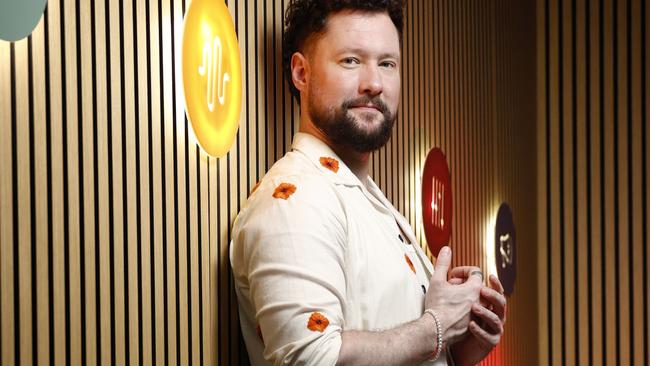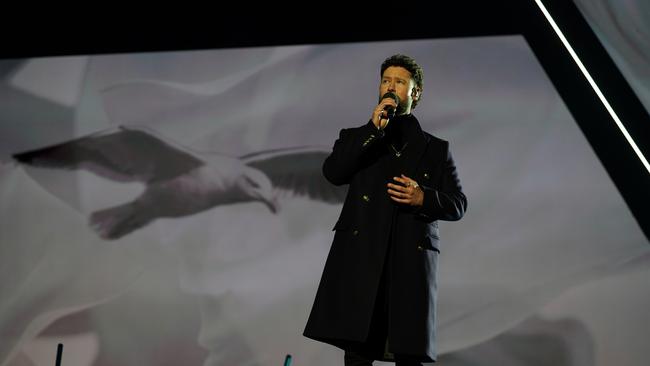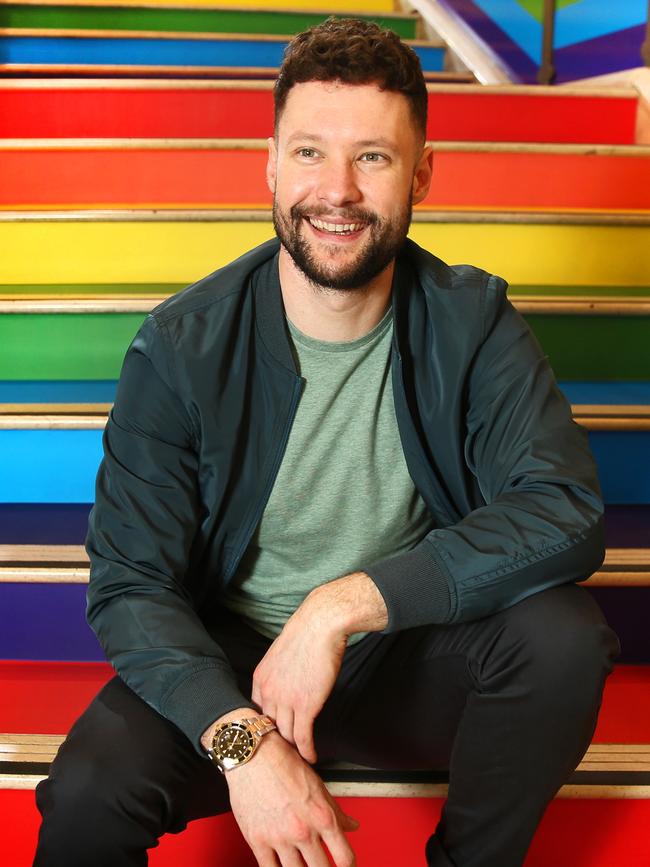Chart topping singer reveals battle with body dysmorphia
Chart topping singer Calum Scott has opened up on life behind the microphone, talking of his darkest of days on the Mental As Anyone Podcast.

Confidential
Don't miss out on the headlines from Confidential. Followed categories will be added to My News.
Ed Sheeran’s advice helped singer Calum Scott with his music. The British singer was sadly on his own when it came to battling his mental health.
Scott supported Sheeran on his +–=÷× Tour (pronounced The Mathematics Tour), where the global superstar shared some backstage words of wisdom on the pitfalls of chasing hits.
“He (Sheeran) said, unfortunately, you can’t help but have it in your periphery, but you have to ignore it,” Scott said on the latest episode of the Mental As Anyone podcast.
“You have to just write something that feels like it comes from the heart or feels meaningful, because otherwise your vision of your song is skewed towards, ‘I need it to be successful’. “Then I think you can hear that in the song, it feels like it’s shortcomings. That’s why I always just dig into something that feels real and honest and sincere and then that way, if it’s a hit, it’s a hit.”
Scott, who worked in HR before fame, broke through with debut album, Only Human, in 2018.
He won over fans with his first hit single, a cover of Robyn’s Dancing On My Own he performed three years earlier when he competed on reality talent contest Britain’s Got Talent.
Scott, 36, followed up with Bridges in 2022, the name taken from a dark moment in his life when he nearly took his life but stopped himself jumping off a bridge as his mental health spiralled.
“I had low self-esteem. I haven’t really talked about this publicly, but I used to go to bed of a night and I started to develop a body dysmorphia,” explained Scott, whose new single Die For You is out Friday with third album Avenoir released in September.

“I used to look in the mirror and anything that I didn’t like, I used to write down and I would just sit in bed and read that list over and over again. I got to the point where I just hated myself, hated the way I looked, hated the fact that I was gay and I lost all my friends. I just was in a bad, bad place. My journey with mental health has been a long one and in some ways, it’s still ongoing.”
“Lumps here, bumps there, red marks, like things that would probably, if you’d study your body enough, you’d find things, freckles and things that you didn’t like or you wish you had better skin or you had a better body type or whatever. I would get into minute detail with it and just got to a point where I was like, ‘I don’t see how this gets any better’.”
The moment on the bridge forced Scott to seek help.


“I probably had a lot of issues about my upbringing with my dad not being in the picture so much, with my sexuality, a bit of internalised homophobia. And then that developed into body dysmorphia. There was a very real time when I was on a bridge and very nearly threw myself over the edge.”
At his lowest point, came hope, as Scott physically stepped back from the abyss, and took charge.
“It was my mum actually who popped into my head and I just thought, I can’t leave this woman behind, like what it would do to her and I vowed to go and get help the next day. I went into a doctor’s surgery and I was like, I’m scared if I don’t do anything about this, I’ll do something stupid.”
Do you need help? Lifeline: 131144; Beyond Blue: 1300224636; Kids Helpline: 1800551800





